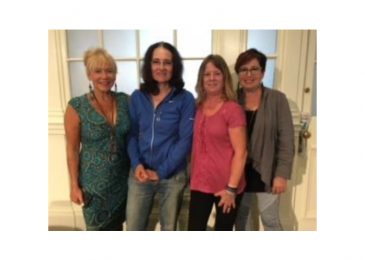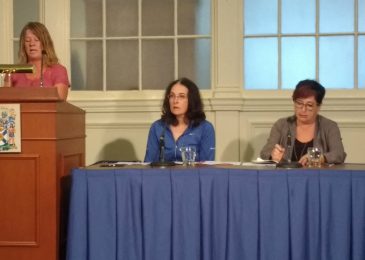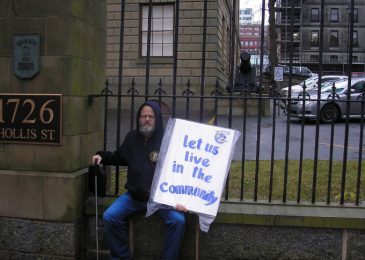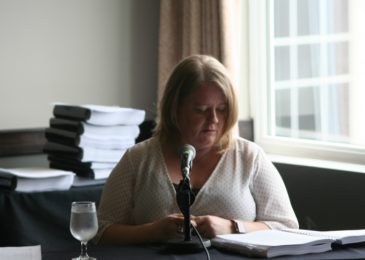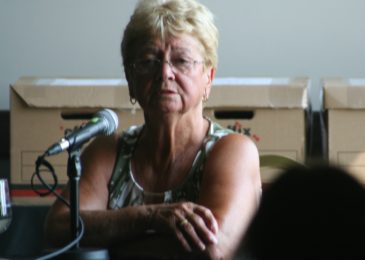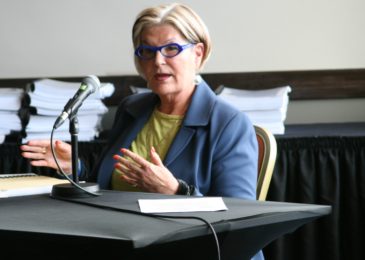Farting rainbows and unicorns – Paul Vienneau on the government’s response to the accessible washrooms decision
Paul Vienneau is one of the accessibility advocates who successfully challenged the government’s refusal to enforce health and safety regulations when it comes to accessible washrooms. After a long battle with the Human Rights Commission there finally was a human rights tribunal, and in September they won their case. Just this Friday the government announced that it accepts the decision. Paul is NOT impressed.



